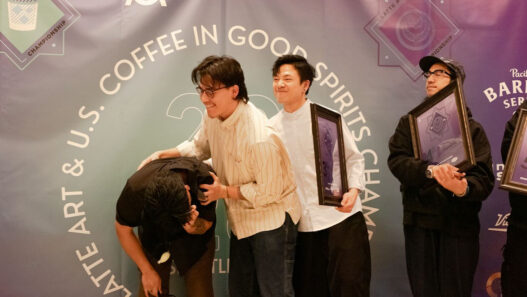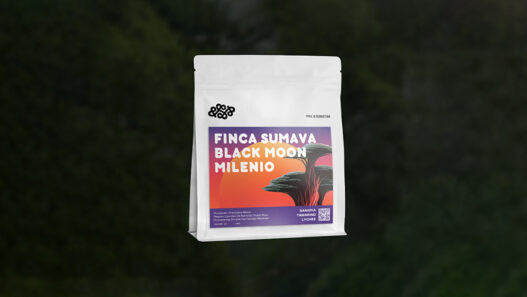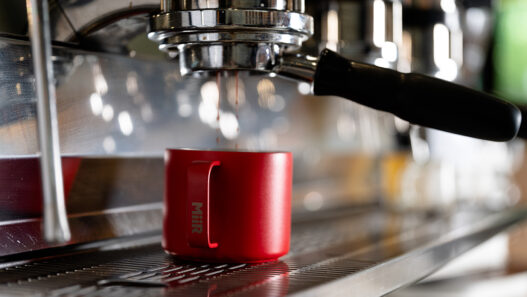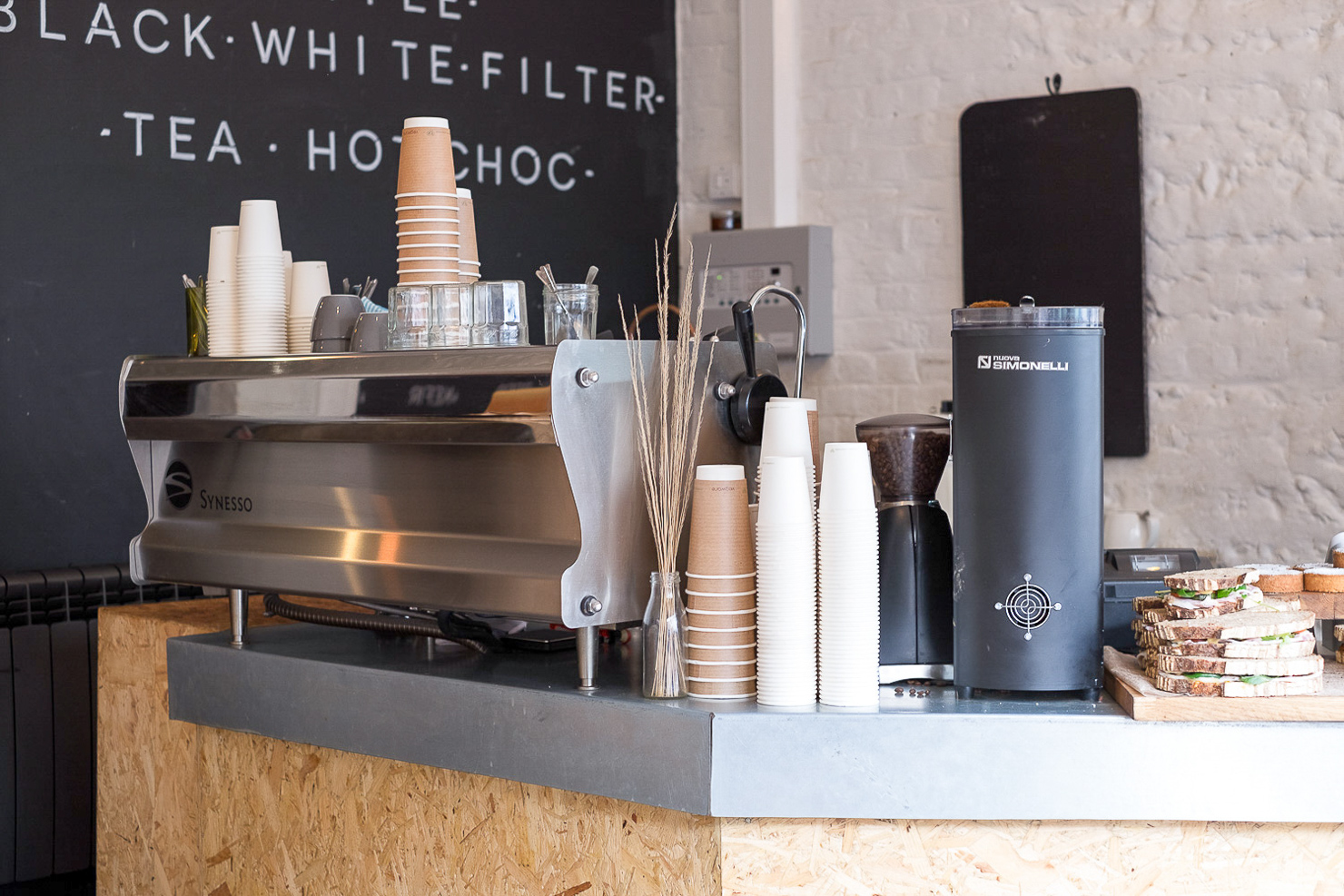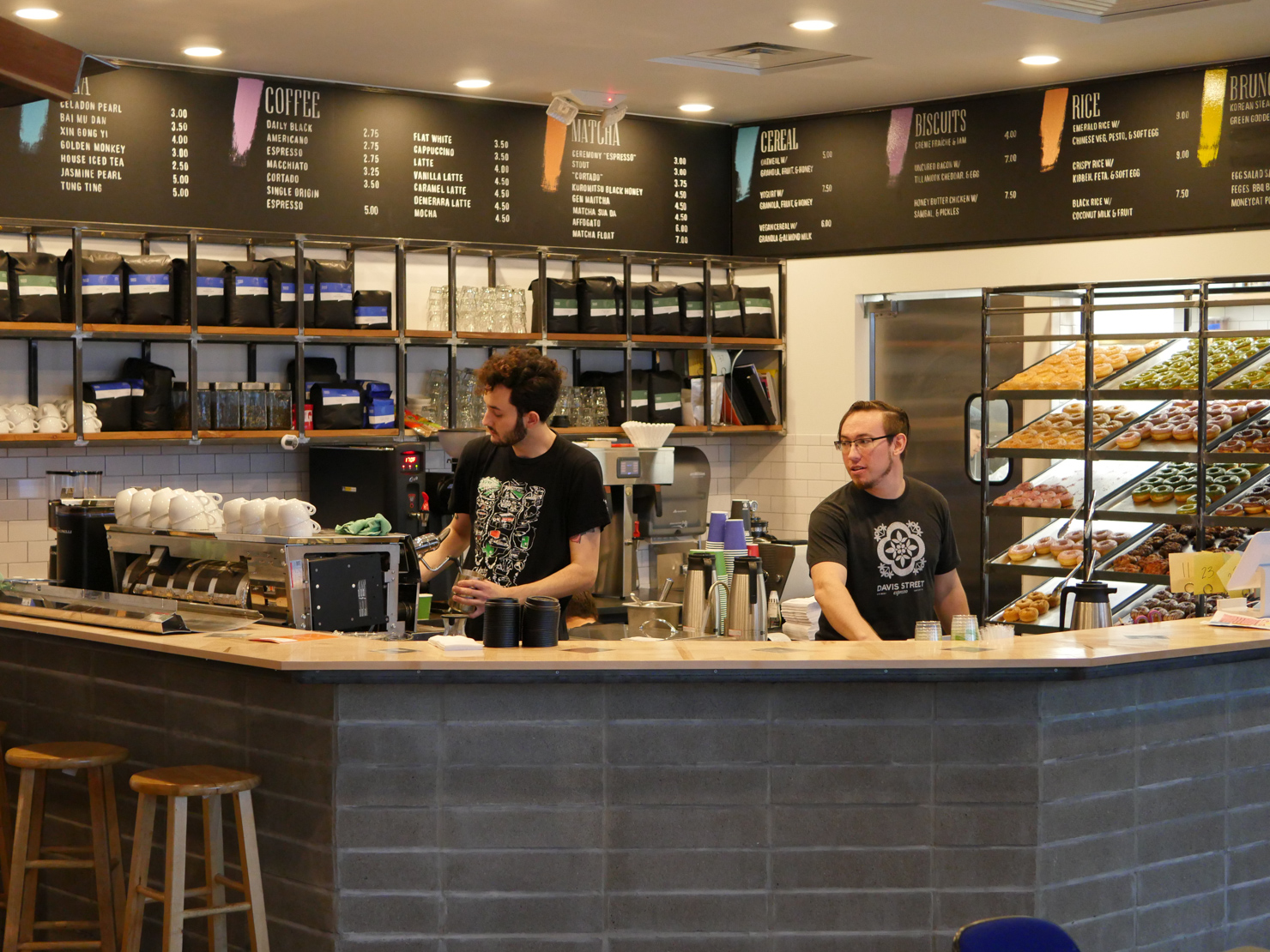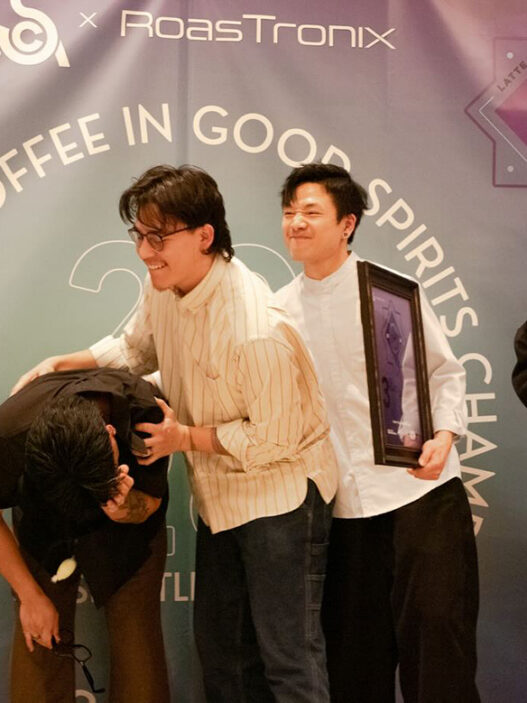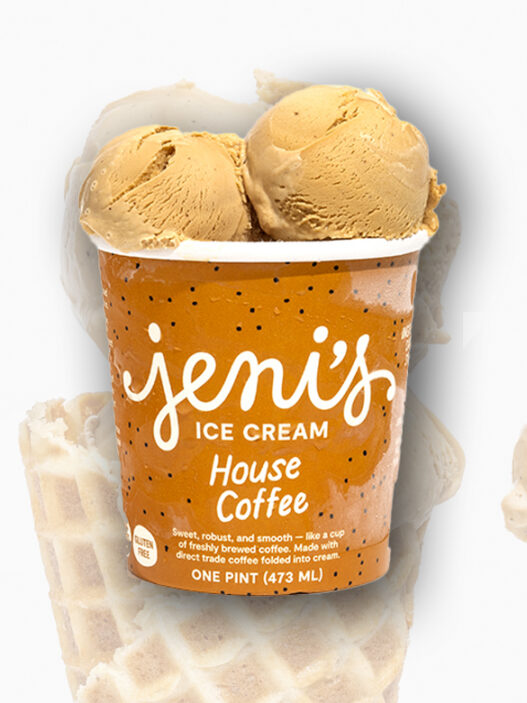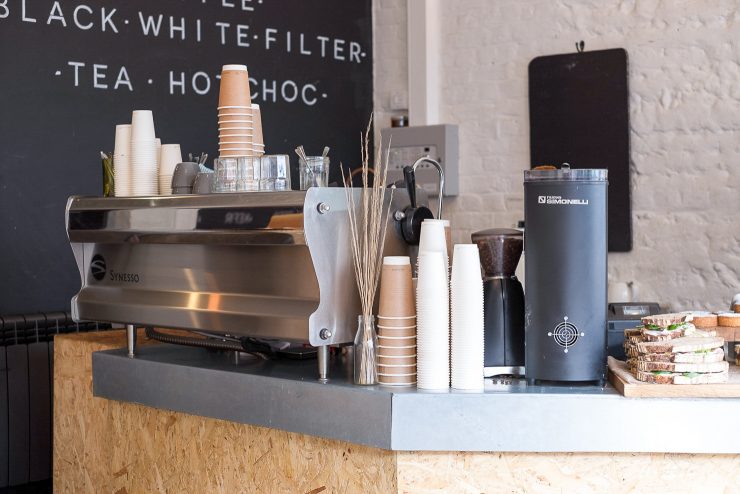
As the coffee industry grows worldwide, waste has become a more pressing issue to deal with. More farmers, roasters, and coffee-shop owners are looking for ways to turn coffee and milk waste into a resource. I traveled to Brighton in East Sussex, England, to meet Douglas McMaster, chef/owner at Silo, to talk about food and coffee waste and sustainability in an urban environment.
McMaster worked as a chef at restaurants like Copenhagen’s Noma and St. John in London before moving to Melbourne in 2012. There he opened a pop-up cafe called Silo by Joost, a prototype of sorts for Silo in Brighton, where he learned a lot about zero waste and began pushing away from industrial food.
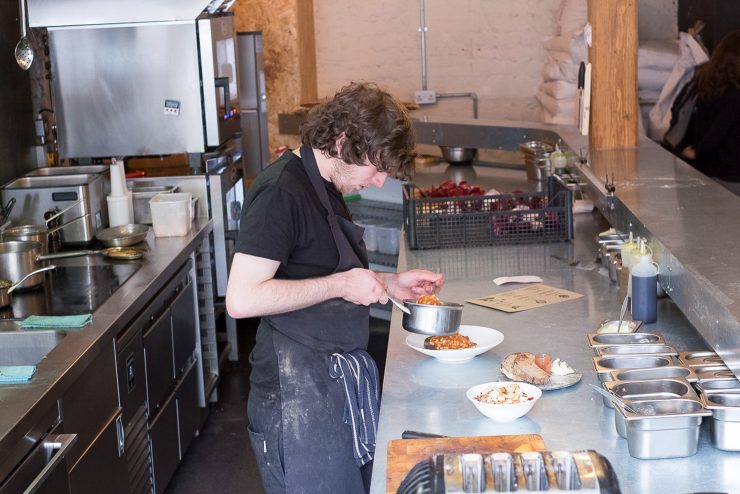
In 2014 McMaster moved back to the UK, settled down in Brighton, and opened the acclaimed Silo, a stripped-back neighborhood restaurant filled with reclaimed furniture and recycled tools. The zero-waste approach at Silo’s core follows a mantra of “reuse, reduce, share, repeat.” More than just a nice idea to aspire to, for McMaster this is a lifestyle choice to follow in everyday life. How do you achieve that, though, in a modern restaurant and coffee shop, where packaging and food waste seem to be unavoidable issues?
The idea alone of not having a rubbish bin in a restaurant seems unthinkable, yet Silo makes it possible by using an aerobic compost machine (which they named Bertha) that processes all of the restaurant’s food and coffee waste, generating up to 60 kilograms of compost every day. The compost is shared with local farmers, used as fertilizer and to grow vegetables such as mushrooms and carrots.
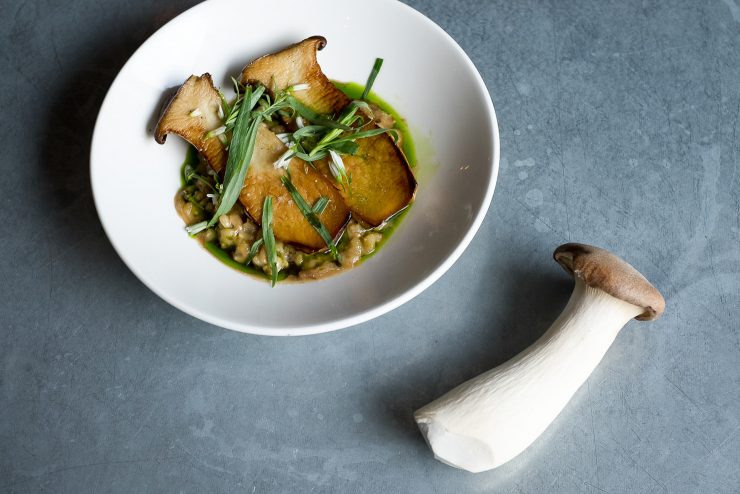
“All our produce comes in without a packet. If it’s not eaten, it goes into the compost machine. What’s born from that is exciting to me,” says McMaster.
Products are delivered to Silo in reusable crates, cans, urns, or other containers. Plates are made from recycled plastic, and filter coffee is served in glass jars. The coffee beans, roasted with a Novoroaster 2kg machine at nearby coffee shop Coffee at 33, are collected from the roaster and carried back in a plastic crate.
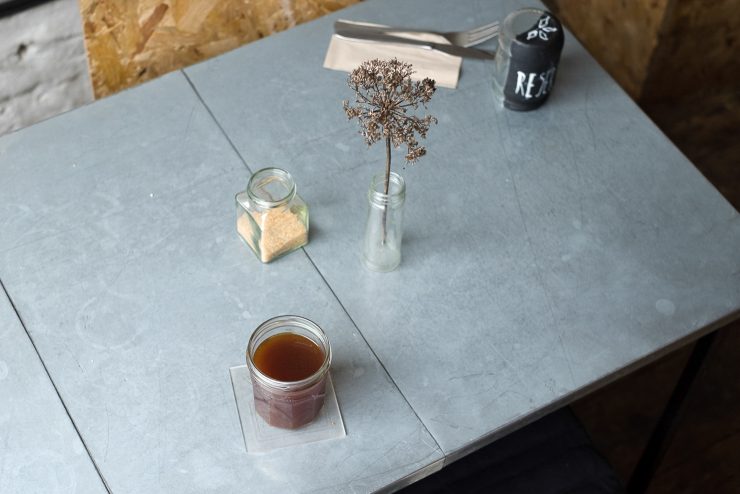
Another key element in the zero-waste approach is sustainability. “It’s about creating everything we need from the food in its whole form, cutting out food miles and over-processing whilst preserving nutrients and the integrity of the ingredients in the process,” says McMaster. “Everything we serve is made, baked, or brewed here at Silo. We mill flour for our sourdough, roll oats for our porridge, make yogurt, churn butter, and prepare all ingredients from scratch. By creating everything on-site from its whole form, we can create real food, and real food tastes better.”
The first thing you notice when you enter Silo is a flour mill used every day following a traditional method. A flour mill was also chosen as the logo for Silo, as it best represents the restaurant’s ethos of creating everything from scratch in a pre-industrial, sustainable way.
The other vital component to McMaster’s approach is direct trade. “[It] is crucial to zero waste,” says McMaster. “Dealing directly with farms and producers means we avoid the bureaucratic rules and regulations about packaging. These rules encourage middlemen and untraceability [of products].”
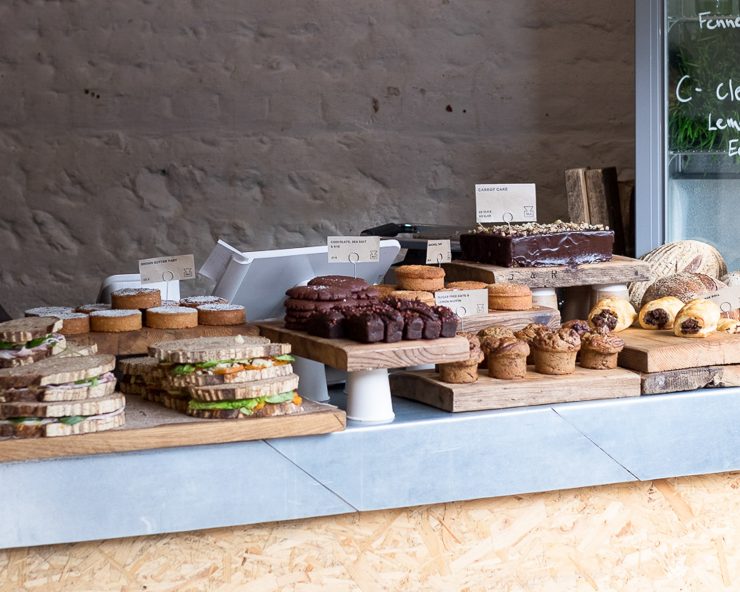
Every Monday morning McMaster drives for three hours around the English countryside, visiting local farms and collecting around 90 percent of all the produce required for the weekly menus: 300 to 400 kilograms of meat, eggs, fruit, and vegetables. The fish is delivered straight from the ocean every day. The organic, un-homogenized and pasteurized milk used at Silo comes from Downsview Farm in East Sussex and is used to make curd and cheese.
The chocolate mousse dessert I had was made with all cocoa products, including shells and nibs, and served with prunes stewed in espresso, homemade yogurt, homemade pine oil, and chervil. Silo uses chocolate from the Dominican Republic, carried to England on a carbon-emission-free “pirate ship” by Seaforth Chocolate Company.
The brewery in Silo’s basement, called Old Tree, creates fermented drinks using foraged and intercepted plants, herbs, vegetables, and fruit. The wine sourced from different raw producers is organic, produced naturally, and unbottled.
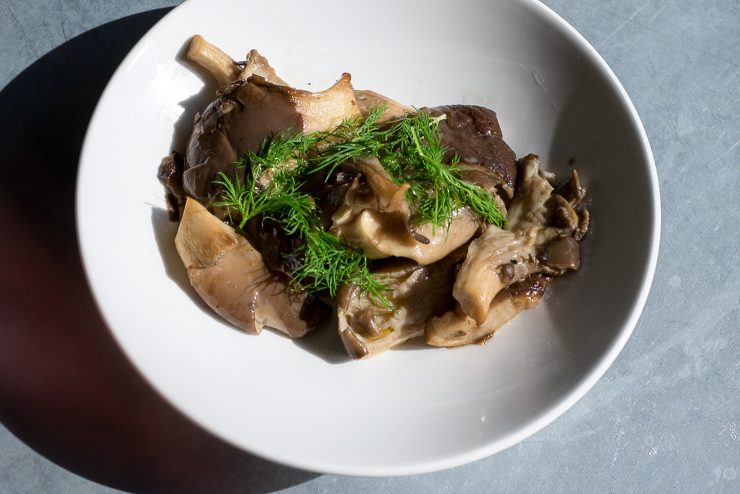
McMaster’s food approach is fascinating, and to see how the restaurant works to tackle real environmental issues is inspiring. Silo is proof that a truly sustainable food business is possible and can work financially.
The next step for the company is to encourage the growth of other waste-free businesses through collaborations with other restaurants. Last month McMaster organized a one-off dinner in collaboration with Longberry magazine structured entirely around coffee waste. The six-course menu featured dishes such as carrots slow-cooked by the natural heat inside the compost, and prunes cooked in espresso with curd made from leftover milk from Silo’s coffee bar. Also on the menu was James Hoffmann’s cascara chocolate, a product that Square Mile Coffee recently presented at the London Coffee Festival as part of a pop-up focused on coffee taste.
It’s encouraging to see the coffee industry increasingly developing ideas and projects to tackle the waste issue, becoming more sustainable and green throughout the stages of production and consumption. Silo is already setting a great example—hopefully other coffee shops in the UK and abroad will follow its lead.
Giulia Mule (@mulia) is a Sprudge.com contributor based in London. Read more Giulia Mule on Sprudge.




